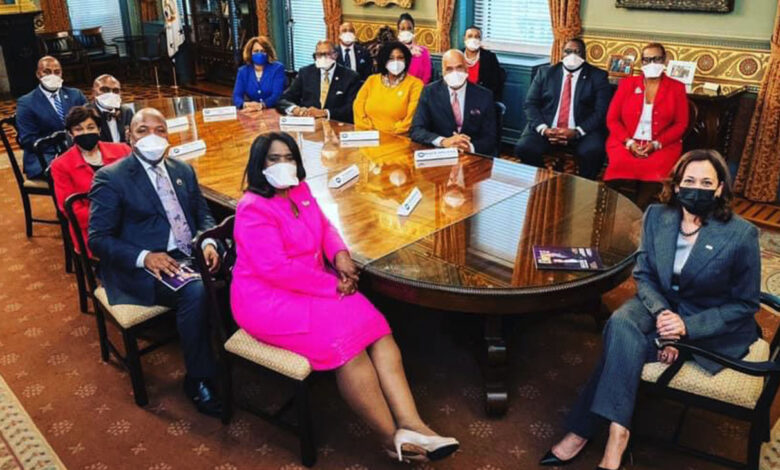
Congressional Hearing Digs into the Roots, Contributions of HBCUs
Najee El-Amin | New Tri-State Defender
Donning one of her signature western hats, U.S. Rep. Frederica S. Wilson (D-Florida) recently presided over the latest House Education and Labor Committee’s Higher Education and Workforce Investment Subcommittee hearing regarding continued congressional support for historically black colleges and universities (HBCUs).
The Oct. 6 hearing, titled “Homecoming: The Historical Roots and Continued Contributions of Historically Black Colleges and Universities (HBCUs.),” was streamed live on YouTube.
Committee members listened as witnesses — including Memphis-raised Dr. Glenda Glover, president of Tennessee State University — stressed the importance of HBCUs and the economic necessity for continued financial support for HBCUs.
“HBCUs have been at the very heart of addressing our nation’s long-standing education and racial equity failures. For nearly 200 years, they have provided ladders of economic and social mobility and safe havens for generations of Black students,” said Wilson.
A graduate of Fisk University, a Nashville HBCU, Wilson added, “HBCUs remain integral to promoting the academic, social and economic success of the descendants of enslaved Americans…”
Dr. Glover also advocated for the continued funding of historically Black colleges and the Build Back Better Act.
“HBCUs have changed the college landscape and have achieved in spite of the continuous challenges and limited resources,” said Glover, who also is international president and CEO of Alpha Kappa Alpha Sorority Incorporated.
“HBCUs have consistently had to do more with less…The Build Back Better Act is a game-changer. It reflects the (President Joe) Biden administration’s understanding of investing in HBCUs.”
Glover thanked lawmakers for legislation that provided financial support amid the COVID-19 pandemic, particularly to HBCUs, but she said more is needed.
“The emergency funding was significant because it assisted students as they faced this sudden crisis. Today we ask you to continue that financial support of HBCUs, not just on the emergency basis as the CARES Act and other emergency funding has done in the past. We ask you to assist HBCUs as they seek to grow, develop, become more competitive and sustainable for years to come.”
She outlined three specific areas that HBCUs need funding: infrastructure and deferred maintenance, technology, new academic programs and research.
The hearing was held amid intense congressional negotiations regarding whether Congress will approve or reject the 2021 budget reconciliation bill (Build Back Better Act), which would provide some $31 billion to HBCUs and other minority serving institutions (MSIs).
While these schools finally are receiving the recognition they have earned, HBCUs have produced some of America’s top Black talent for more than a century.
By graduating 80 percent of Black judges, 70 percent of Black doctors and 50 percent of Black teachers, HBCUs already have backed up the claim that they are a cornerstone of minority education.
Dr. Andre Perry, senior fellow with the Brookings Institute, testified on what he believed to be a matter of national importance. Perry stressed the beneficial impact of government investments in other aspects of American society and the results would be no different when applied to HBCUs.
He pointed out the endowment disparities between HBCUs and predominantly white institutions.
“Less than one percent of federal research and development expenditures went to Historically Black Colleges and Universities in 2019,” said Perry. “We cut our noses to spite our face when we don’t invest in the assets that spur economic and social mobility.
“The lack of investment in HBCUs flies in the face of research that shows these institutions punch above their weight when it comes to developing the talent society needs.”
Another witness, president and CEO of the National Association for Equal Opportunity in Higher Education, expressed her gratitude for what has been done. She believes, however, that the lack of equitable funding might be caused by a fundamental misinterpretation.
“We’re grateful. Those dollars enabled HBCUs to continue their long and stony world towards equitable funding,” said Baskerville.
“But what we don’t have now is an understanding about what HBCUs are. HBCUs are not minority-serving institutions… There is no race or ethnicity criterion.”
While the witnesses and Rep. Wilson spelled out the challenging reality HBCUs currently face, Wilson made it clear that they will keep up the fight until their goal is met.
“In light of the unique mission and history of HBCUs, I firmly believe that investing in these institutions and their students is one of the most significant actions we can take to right the wrongs of the past,” said Wilson.
This article originally appeared in the New Tri-State Defender










